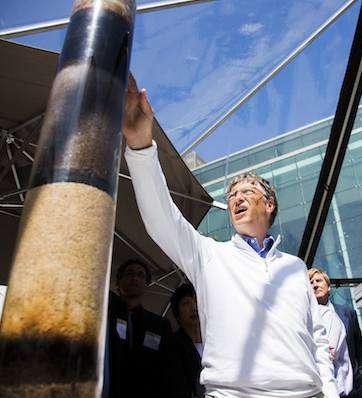25 Percent Drop in Maternal Deaths for Sub-Saharan Women
The proportion of women in sub-Saharan Africa who died because of pregnancy fell by more than a quarter between 1990 and 2008, according to estimates released yesterday.

Poop in, clean water out.
Bill Gates has invested more than three million dollars on behalf of the 2.6 billion people around the world who don't have access to modern toilets. Yesterday, the three winners of his "next-generation toilet" prize were announced, showcasing innovative designs that capture and process human waste without piped water, sewer or electrical connections.
Even more impressive, the toilet prize-winners all transformed human waste into useful resources, such as energy and water, at an affordable price.
Gates announced the contest one year ago, and yesterday unveiled the three universities that will share $200,000 as winners of the Reinvent the Toilet Challenge.
"If we apply creative thinking to everyday challenges, such as dealing with human waste, we can fix some of the world's toughest problems," said foundation Co-chair Bill Gates.
Other projects featured at the fair include better ways to empty latrines, user-centered designs for public toilet facilities, and insect-based latrines that decompose feces faster.
Unsafe methods to capture and treat human waste result in serious health problems and death. Food and water tainted with fecal matter result in 1.5 million child deaths every year. Proper toilets can also bring substantial economic benefits. According to the World Health Organization, improved sanitation delivers up to $9 in social benefits and increased economic productivity for every $1 invested.
The foundation also announced a second round of winners in the Reinvent the Toilet Challenge totaling nearly $3.4 million. The grants were awarded to teams using a variety of tools, including microwave technology to turn waste into electricity and sand filters and ultra-violet light that sanitizes feces overnight. Four winners include:
The Foundation has committed more than $370 million to their Water, Sanitation & Hygiene initiative.
"Imagine what's possible if we continue to collaborate, stimulate new investment in this sector, and apply our ingenuity in the years ahead," said Gates. "Many of these innovations will not only revolutionize sanitation in the developing world, but also help transform our dependence on traditional flush toilets in wealthy nations."
READ more on the Bill and Melinda Gates blog, Impatient Optimists, and another post from yesterday.
Be the first to comment